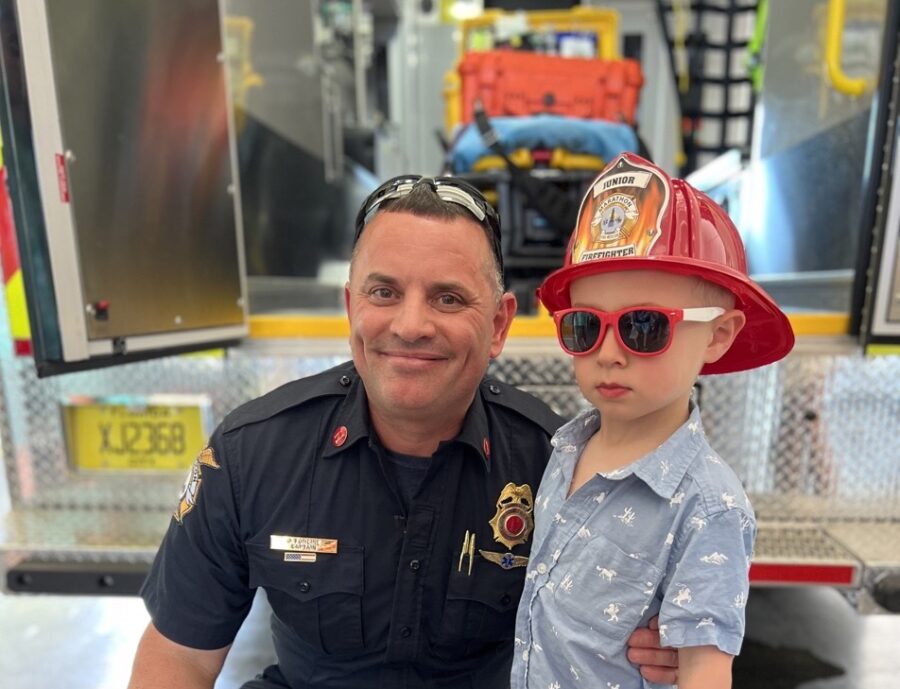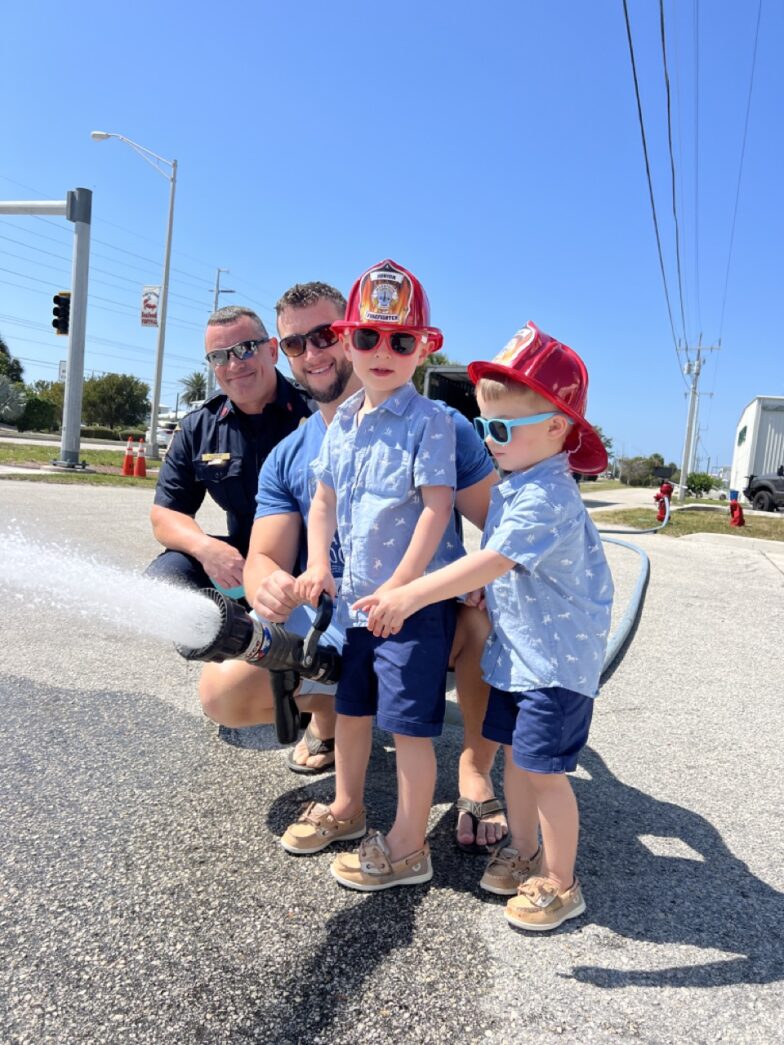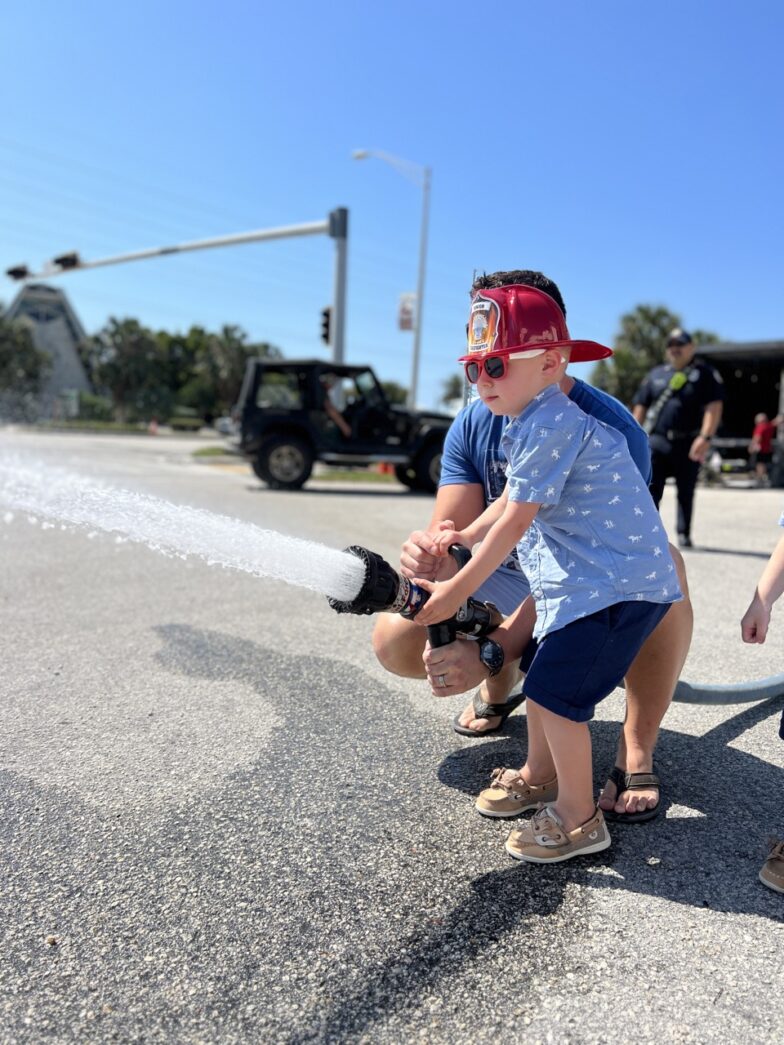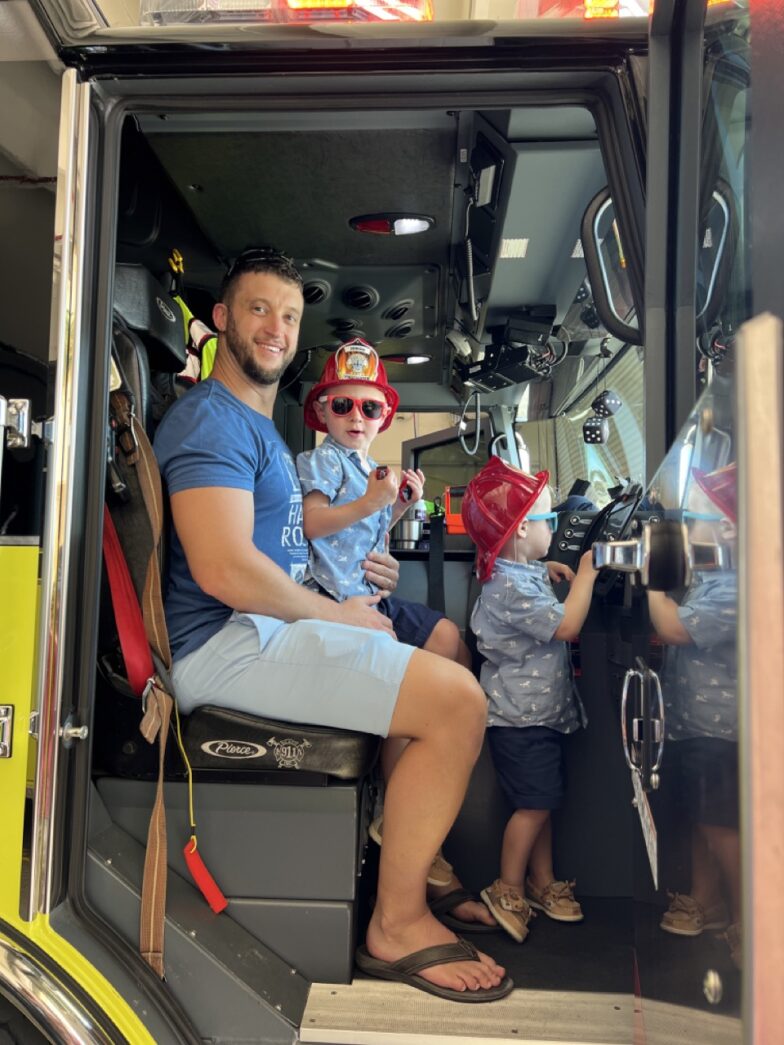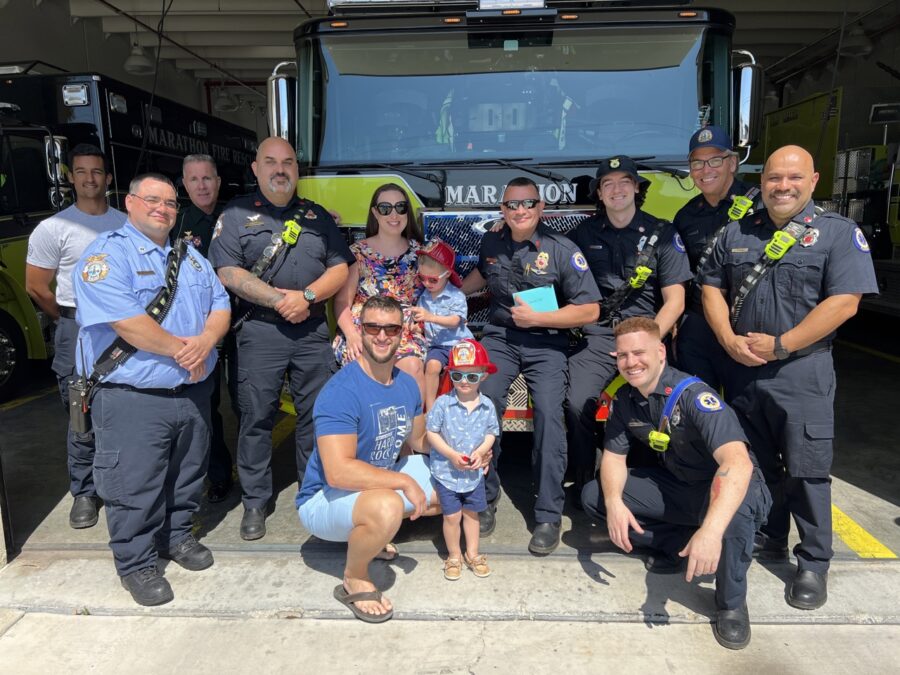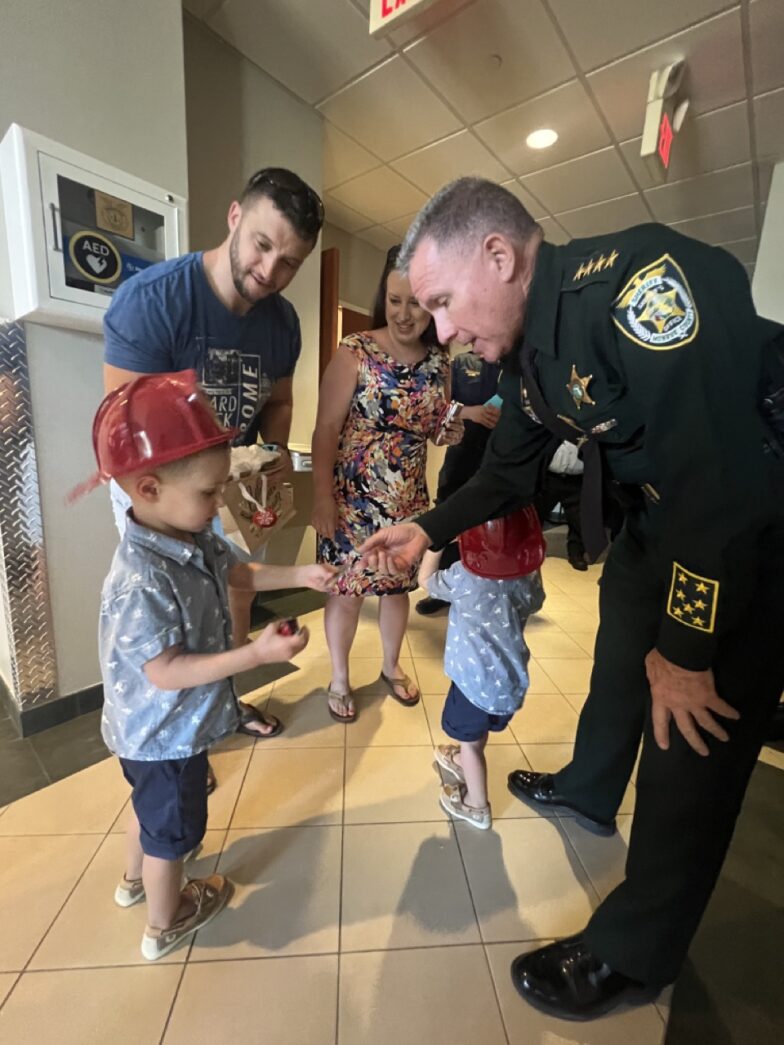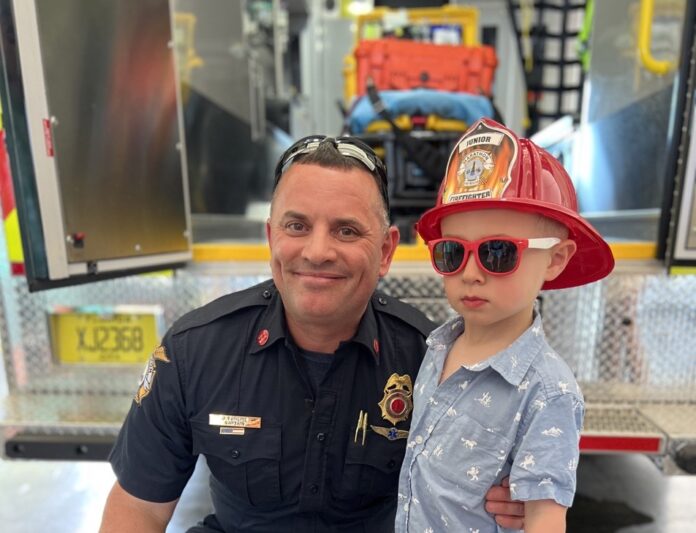
Four-year-old Miles Fortunato may not remember the day one of Marathon’s finest saved his life. But after this week, he’ll be able to tell his rescuer’s story forever.
On March 7, Fortunato and his family paid a visit to the Marathon Fire Rescue station to meet Capt. Joe Forcine, a man his parents and grandparents will never forget. As Forcine watched the family walk through the door, his face spoke volumes.
“I can’t tell you how many times I’ve thought about this little boy,” he said as he bent down to offer Miles a hug.
In early 2019, Miles’ parents Jenn and Steve brought their 7-month-old son on vacation to visit his grandparents in the Keys. What began as a small cough for Miles morphed within days into a refusal to eat and difficulty breathing.
“I called a pediatrician and they said to measure his heart rate,” said Jenn, who soon learned her little man’s heart was pumping at more than 200 beats per minute. “They said, ‘You need to get him to the E.R. right now.’”
Doctors at the Fishermen’s Hospital emergency tents struggled to place an IV line in the dehydrated infant, and the decision was made to intubate Myles.
“From what I remember, they gave him the medicine to make him stop breathing on his own, and they went to go intubate him and didn’t have children’s tubes,” said Jenn. “He went to zero and they just ripped me off of him.”
“The doctor was out on a little wooden deck, and he said, ‘Please God, don’t let this little baby die,’” said the boy’s grandmother, Toni Sawyer. “I had just pulled up, and I’m like, ‘Please don’t tell me you’re talking about Miles.’”
With the first helicopter en route to airlift Miles to Miami diverted due to an accident on U.S. 1, and a second bird still a ways out, the minutes remaining to ventilate both of Miles’ lungs were absolutely critical.
Enter Forcine.
With a pediatric background, Forcine’s number was called for help with the intubation. He immediately went to work.
“There were a bunch of nurses around, and when I walked in, I was like, ‘You guys need to move,’” he recalled.
With the baby’s airway extremely swollen due to what was eventually diagnosed as metapneumonia, X-rays sent to Nicklaus Children’s Hospital revealed that Miles’ breathing tube was only providing air to one lung. Pediatric intubations are widely regarded as a challenging procedure even in a fully-equipped medical hospital, let alone an emergency field station, and in Miles’ case, diagnostic images showed that his tube needed to move a mere 2 millimeters – and stay exactly there.
“He was completely gray,” Jenn recalled.
“God was with me, and he put this idea in my head,” said Forcine. “I took a video laryngoscope for an adult and just put it in the corner of his mouth just so I could see. I took an extra long guide wire, and once I could see his opening, I placed that in, and then I was able to slide a tube in and go directly into the glottic opening to ventilate him.”
Miles’ color returned almost instantly, and his heart rate began declining. But one reading was still troubling. His EtCO2 values, a measure of the carbon dioxide exhaled by the baby, still weren’t right, igniting a debate about whether to move the tube again. But Forcine was confident in his placement.
“I was like, ‘That reading is wrong. His color is too good,’” remembered Forcine. “He was so little, the adult one they had on was giving a false reading. I said, ‘He’s too saturated (with oxygen). Leave it alone. … Sometimes you’ve got to look at the baby and not the instrument.”
Sure enough, once the instrument was swapped for its pediatric counterpart, the reading was normal.
Miles was eventually airlifted to Nicklaus and faced an extensive road to recovery. But today, he’s a happy and healthy little boy with a family – including a younger brother and little sister on the way – who will be forever grateful to Forcine and the Marathon Fire Rescue staff who saved their little one’s life.
The station rolled out the red carpet for the youngster on Tuesday, presenting him with fire rescue memorabilia and opening up their ambulances and fire trucks for the family to sit in the front seats – even letting the boys take a swing at blasting a fire hose. Leaving Forcine with a collection of then-and-now photos of Miles, the Fortunatos announced their desire to make a $1,000 donation to the department.
“Everyone we’ve ever talked to has such high esteem for you,” Sawyer told Forcine. “They say, ‘He’s so precise, there’s not a thing he does that isn’t perfect,’ and I have to agree.’”
In the half hour spent at the station, Forcine never stopped smiling.
“When I got this information, it just made my heart smile,” he said. “We don’t always get to hear the rest of the story. … It was truly an honor and a blessing to have helped.”















